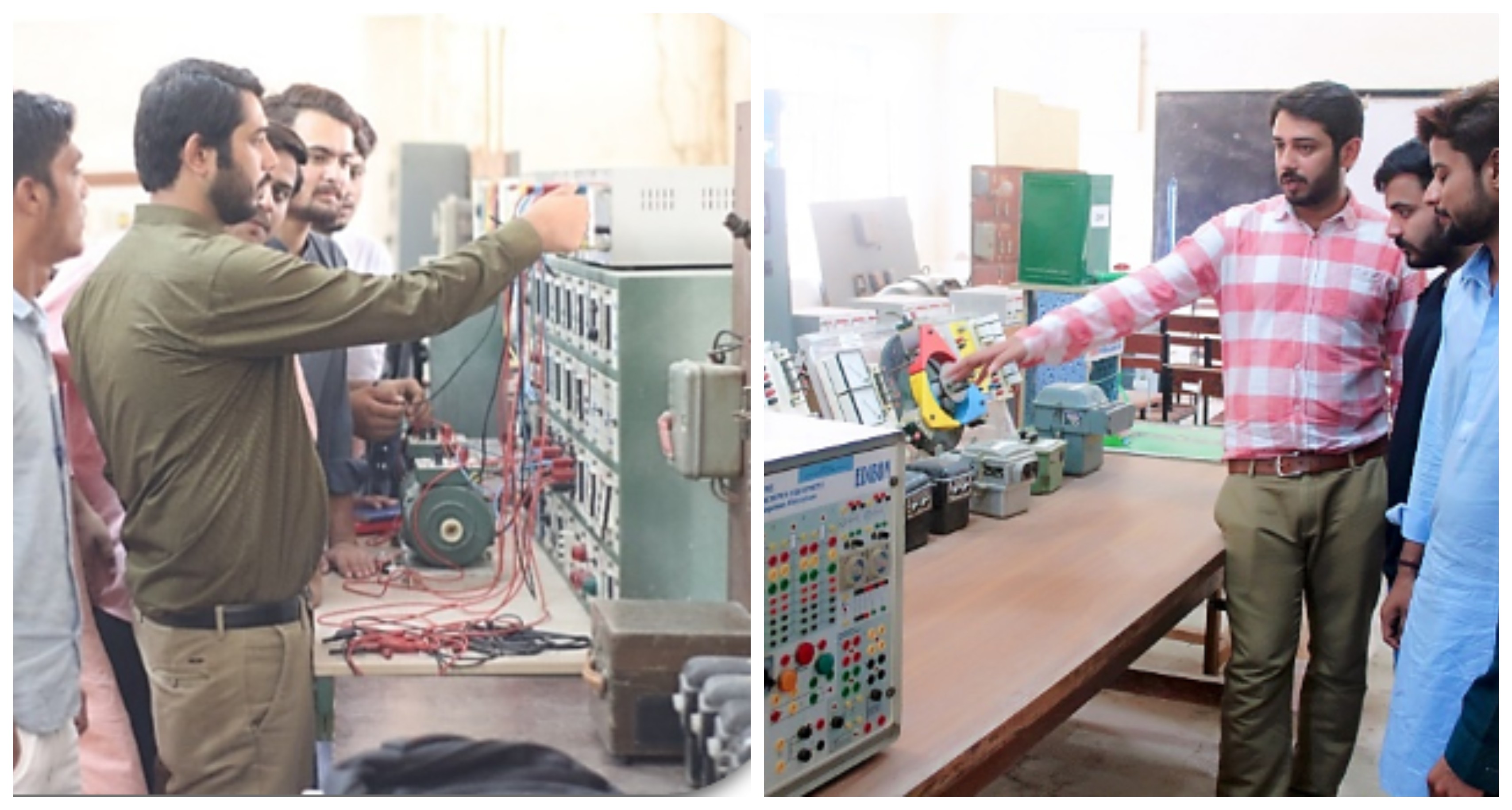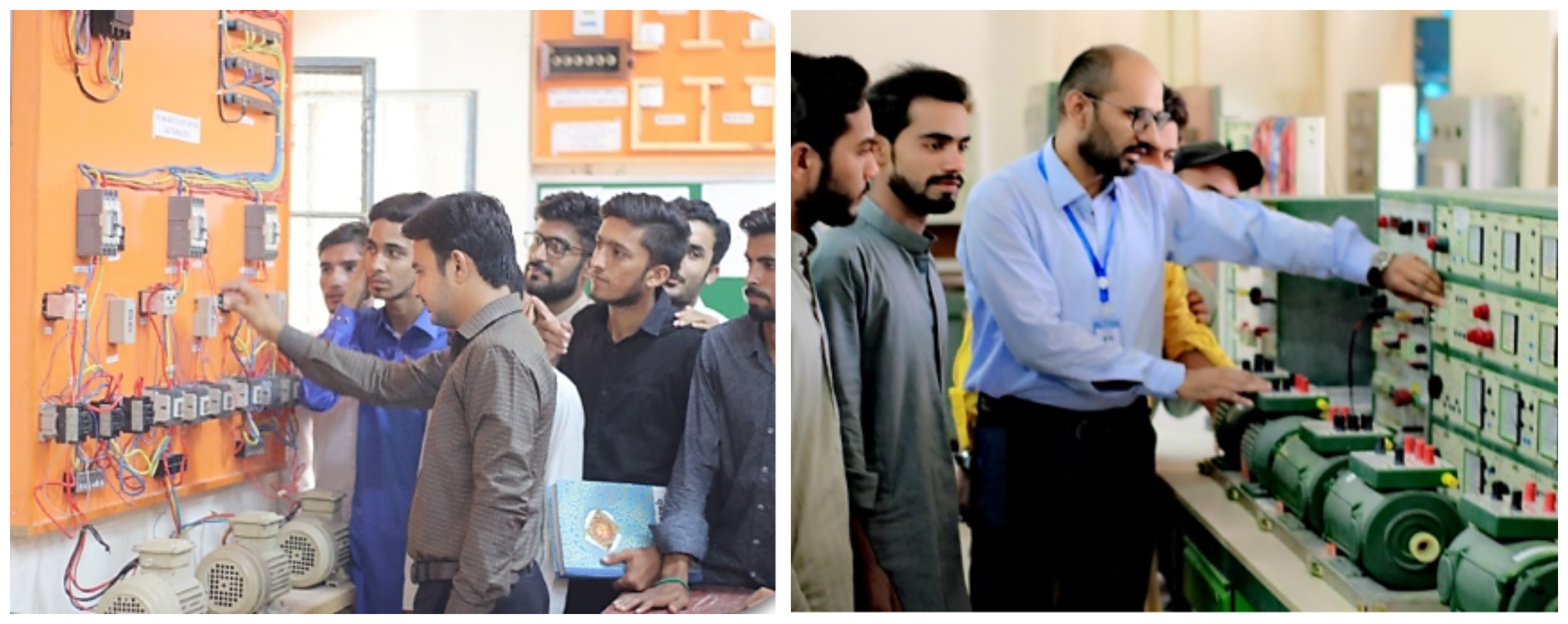
Electricity has a major role to play in this information age. Hence, imparting education in this domain is important and essential for an institution and society to grow. The electrical engineering technology department provides in-depth knowledge about electrical modules covering power generation, transmission, utilization, protective devices, system analysis, control technology, and related topics. Hence, practical hands-on is provided to students to excel in field work. The students are trained to become electrical technologist which can work in the industry for the betterment of society.
"To enhance the quality of teaching and research in the domain of electrical engineering technology and prepare a technologically skilled community at the global level."
"The mission of the Department of Electrical Engineering Technology is to produce graduates equipped with technical and communication skills driven by the knowledge of modern scientific methods, tools, and techniques necessary for solving global technology problems."
Graduates utilizing their professional approach to solve the electrical technology issues of society.
Graduates engraved with state-of-the-art technical and managerial skills to serve the community.
Graduates having strong commitment to ethical and moral practices as a team leader or as an individual.
An ability to apply knowledge of mathematics, natural science, Engineering Technology fundamentals and Engineering Technology specialization to defined and applied Engineering Technology procedures, processes, systems or methodologies.
An ability to Identify, formulate, research literature and analyze broadly-defined Engineering Technology problems reaching substantiated conclusions using analytical tools appropriate to the discipline or area of specialization.
An ability to design solutions for broadly- defined Engineering Technology problems and contribute to the design of systems, components or processes to meet specified needs with appropriate consideration for public health and safety, cultural, societal, and environmental considerations.
An ability to conduct investigations of broadly-defined problems; locate, search and select relevant data from codes, databases, and literature, design and conduct experiments to provide valid conclusions.
An ability to Select and apply appropriate techniques, resources, and modern technology and IT tools, including prediction and modeling, to broadly-defined Engineering Technology problems, with an understanding of the limitations.
An ability to demonstrate an understanding of the societal, health, safety, legal and cultural issues and the consequent responsibilities relevant to Engineering Technology practice and solutions to broadly defined Engineering Technology problems.
An ability to understand and evaluate the sustainability and impact of Engineering Technology work in the solution of broadly defined Engineering Technology problems in societal and environmental contexts.
Understand and commit to professional ethics and responsibilities and norms of Engineering Technology practice
An ability to Function effectively as an individual, and as a member or leader in perse teams.
An ability to communicate effectively on broadly defined Engineering Technology activities with the Engineering Technologist community and with society at large, by being able to comprehend and write effective reports and design documentation, make effective presentations, and give and receive clear instructions.
An ability to demonstrate knowledge and understanding of Engineering Technology management principles and apply these to one’s own work, as a member or leader in a team and to manage projects in multidisciplinary environments
An ability to recognize the need for, and have the ability to engage in independent and life-long learning in specialist Engineering Technologies.
The department consists of ten labs which are well equipped with modern instruments, so that the students can understand the practical aspects of the subjects studied by them.
The Electrical Machines laboratory is a well-equipped laboratory for undergraduate level teaching courses especially for carrying out practical work for Electrical Machines using the latest machine trainers. This lab gives students hands-on experience on AC as well as DC motors & generators.


This lab consists of different relays like Differential relay, Overcurrent relay, Thermal relay, Instantaneous overcurrent relay, single line to ground fault analysis, three phase to ground fault analysis on which students of final year perform experiments related to topics studied in power system.